Transcript of the college class lecture „The Roman Republic“ in 2003, University of Minnesota, USA
[Prof. Saramotti speaking]:
Good day. A short announcements before we start with today’s lecture. I will hand out the take-home exams next week. There will be two questions you can choose from. One will be about the early Iberian wars including the war against Mutorke Carmocoi and the other one will be about the early conflict of the orders. Both questions will rely heavily on the sources so make sure you have all the textbooks.
Anyhow, let’s start with today’s topic. We will talk about the Achaean war, the Italian wars and the relationship between Calatinus and Silanus.
After Denatus had been dealt with the Senate once again closed their eyes regarding all the difficult problems in politics and proceeded in doing business as usual.
The next phase of the Roman civil war started with the rebellion of the Achaean league under the leadership of Corinth. After the last war against Macedonia the Achaean league was guaranteed independence from the Roman Republic, they were free to trade with who ever they wanted and have their own diplomatic relationships. But the league had to ally with Rome. So it is clear that the Achaean league had a unique diplomatic status with Rome. In 96 BC suddenly the league quits its alliance and raids Athens.
Greece in 100 BC befor the war.
Now this seems to be an odd move. The league had nothing to gain from fighting against the Athens, which was part of the Roman province Macedonia. The Romans had about 4 to 5 legions stationed in Greece. Many questions arise as of why the league would act this way and unfortunately the only source we have is Fabius inaccurate account. We would wish for Silanus version of the story, but unfortunately the Greek historian was dead for 20 years back then already.
Now the Romans did not waste time and elected Aulus Atilius Calatinus as consul, an extroverted dynamic Plebeian. In his staff was a military legate called Publius Iunius Silanus, an extravagant Patrician.
Now the next odd thing happens. Calatinus decided to move his forces to Sparta in the south, landing on the western coast of the Peloponnesus, while ordering Silanus to lay siege against Corinth. Corinth was definitely the stronger opponent and naturally it would have been Calatinus prestigious right to face the main army. But there seemed to be a friendly relationship between the older Calatinus and the younger Silanus. Calatinus had already fought against Iberians as a military tribune and against the Teutons as a military legate under Denatus. It seems like Calatinus saw Silanus as his protégé for whom he tried to help his career by letting him win a big victory.
Both leaders landing in Greece.
By late 95 Calatinus had conquered Sparta without much trouble and in October of the same year Silanus attacked Corinth.
Roman infantry charging against the walls of Corinth. They had been opened by Roman enginers during the night.
The Corinthians were cought by surpise, but the Townwatch fought vigiourisly against the enemy.
The battle of Corinth was the last one that the famous Spartiads fought. But this was not the Persian Empire, this were Roman legions, disciplined and well equiped.
Most fighting took place in narrow streets.
Roman infantry moving up in the city.
Besides the Spartiads the Romans face little resistance...
... and even the Spartiads are defeated eventually. The Romans took great pride in defeating such a famous enemy.
Corinthian cavalry trying to attack the Romans. In these narrow streets the horsemen can do little damage.
Eventually the Romans secured the center of the town.
Greece after Corinth had fallen.
Within one year the Achaean league was defeated and abolished. The last classical independent Greek state was gone. Fabius gives us the story that Silanus actually cried when he destroyed Corinth, when a tribune approached him and asked why he cried, he answered: “It is sad to see this city burn as the same fate awaits Rome some day too”. Once again you see the strong ties to morality in Fabius account.
Now we have to turn our eyes back to Italy, since the war against the Achaean League triggered an important event there. Since Denatus tried to give citizenship to all the Italian allies and was murdered therefore the Italian allies were in a very uneasy relationship with Rome. It was clear to the Roman Senators that the allies wanted a piece of the pie too, but they turned them down whenever they could. With the murder of Denatus they sealed the fate of the Italians. The Samnites openly spoke about leaving the alliance with Rome and during the Achaean war this movement gained momentum. Now the Roman armies were occupied elsewhere and in 95 BC political and military resistance gained the upper hand. In the winter most important cities were rebelling against Rome and in early 94 BC the Samnites, the Greeks to the south, the Umbrians in the north and the Brutii in Calabria declared their independence from Rome. They installed a Senate and two meddix (Samnite consuls) in Benevetum, an old Samnite city. The Samnites remembered times when the Samnites under Keliis Puntis defeated the Romans and now the rebelling Italians were inspired to do the same.
The rebells in 95 BC.
Initially the Romans did not attack the Socii but waited for Calatinus to return from Greece.
In 93 BC the Roman consul Servius Julius Caesar, the father of Marcus Caesar started attacking the allies from the north, while to the south Calatinus landed with his battle hardened troops.
Caesar attacked the allies in the battle of Taenum…
This battle was one of the first where the Romans used siege artillery in large numbers.
Samnite heavy soldiers moving up.
The Italians had expirienced troops. Especially the Campanian horsemen were feared by the Romans.
A Socii scout gathering intel on the enemy lines.
The Roman legion is getting into position. This first battle is an important one for the Romans.
Imidiatley the Socii cavalry was attacking the left Roman flank. Caesar lacked horsemen himself and could do little to attack the enemy.
Servius Caesar decided to bring his elite troops to the left flank, since heavy losses were reported there.
The enitre left flank was endangered and breaking away. This could mean defeat.
The Romans were able to hold the center.
But the the pressure on the left flank was too much. The Socii simply had too many cavalry units. The soldiers break and start to flee.
Caesar watching the left flank breaking away. This mean the battle was not to win anymore. Facing total defeat he gave the sign to retreat.
The Roman legion retreating from the Socii.
One can only imagine the chaos under the Roman legion. The first battle was lost.
…where he got defeated by the meddix Titus Lundis.
So the Romans had a terrible start during the war. But Calatinus did not wait for long and attacked the Greek Socii in the south during the summer.
Calatinus had studied ancient Greek military tactics and experimented with the oblique order.
The greek Socii attacking.
Brutian soldiers preparing to launch spears while being under heaving fire themselves.
The battle started like Taenum with the left flank being attacked by cavalry. But Calatinus had a trump hidden in the forest.
Heavy Macedonian cavalry charge from the woods and surprise the Socii.
The battle is bloody and tough. But Calatinus has the initiative.
Some Socii start to flee after the cavalry attack.
Those Macedonian soldiers are perfect for devestating the enemy line from behind.
The left flank held out as long as they could, but eventually the pressure was to great...
...the socii decide to retreat.
Calatinus won an important victory that knocked out the Greeks of the war and captured the cities Tarentum and Brindisium. Servius Julius Caesar redeemed himself after the loss at Taenum when he defeated the Umbrians at Trebia in the fall of the same year [93 BC].
But the good news where quickly meaningless when news came from Spain that the Lusitanians under their new king Soustunos Lacobricoi were rebelling against Roman rule. This rebellion spread quickly around Spain and now the Romans were in deep dodo. The Socii were far then dealt with and in Spain a great rebellion swept away Roman rule. Even more alarming was that the Romans did not have enough troops in Spain to engage the Celts.
But for now, let’s take a 15 minute break and we will continue with the lecture afterwards.




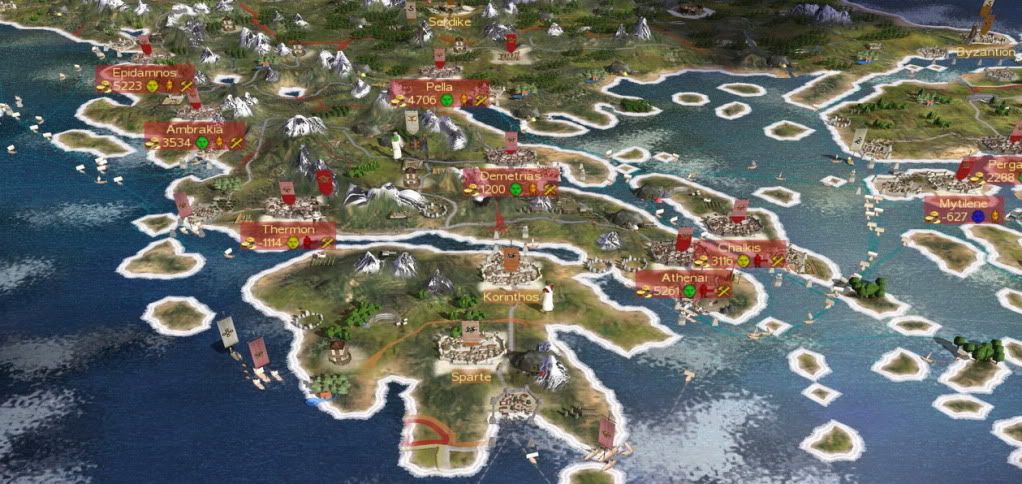

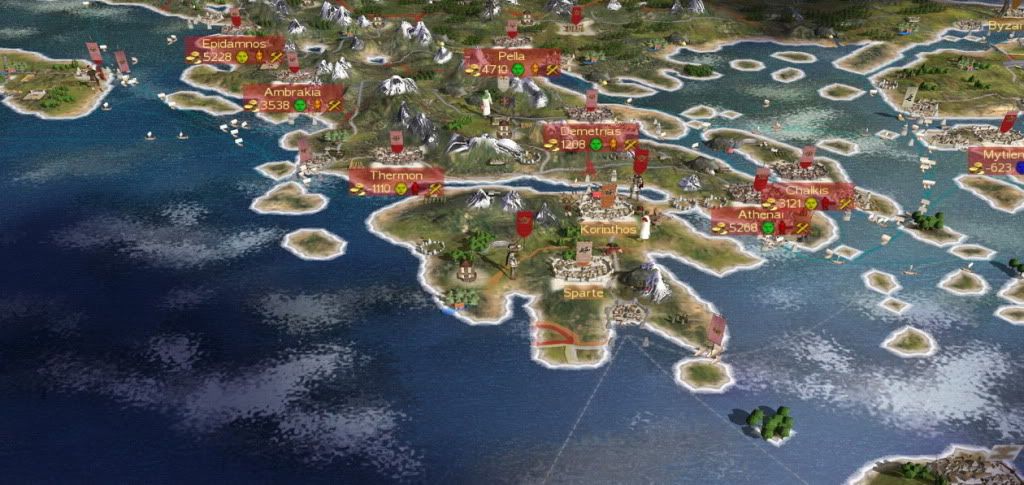
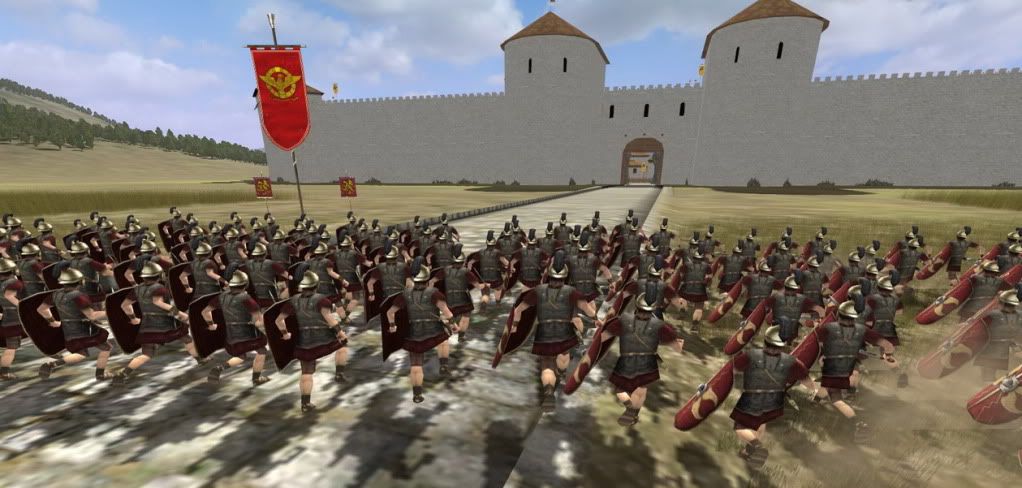
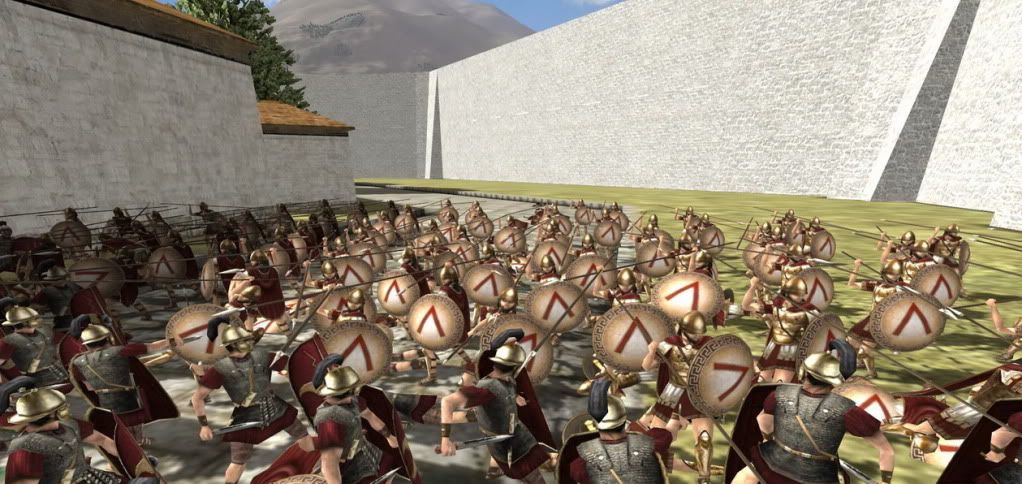
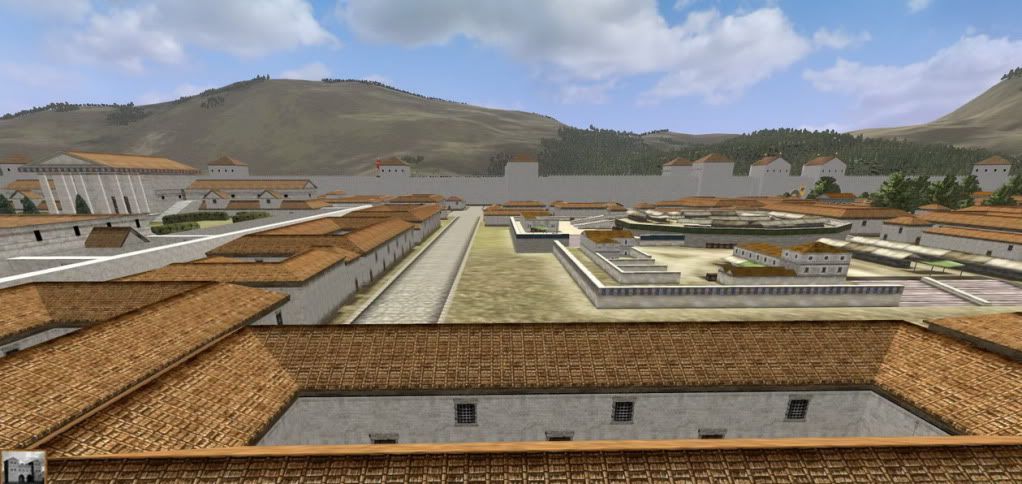
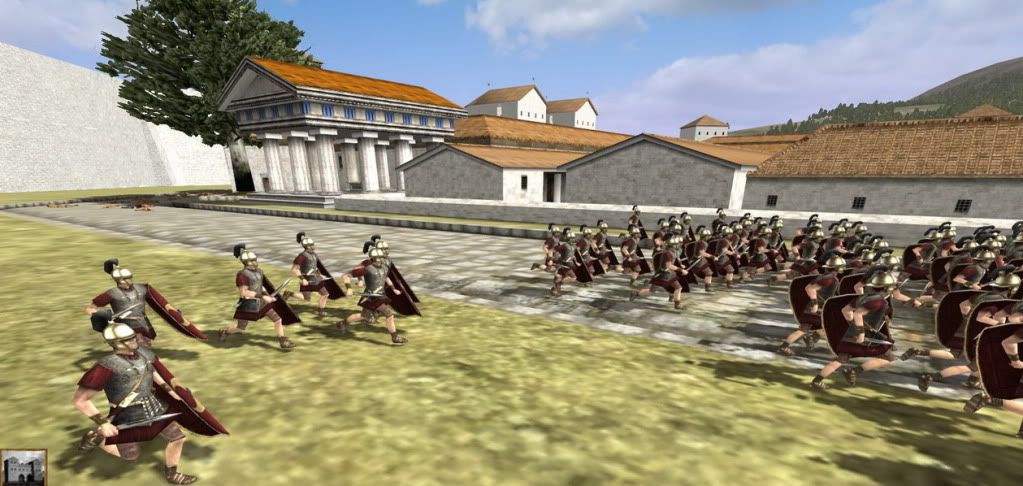
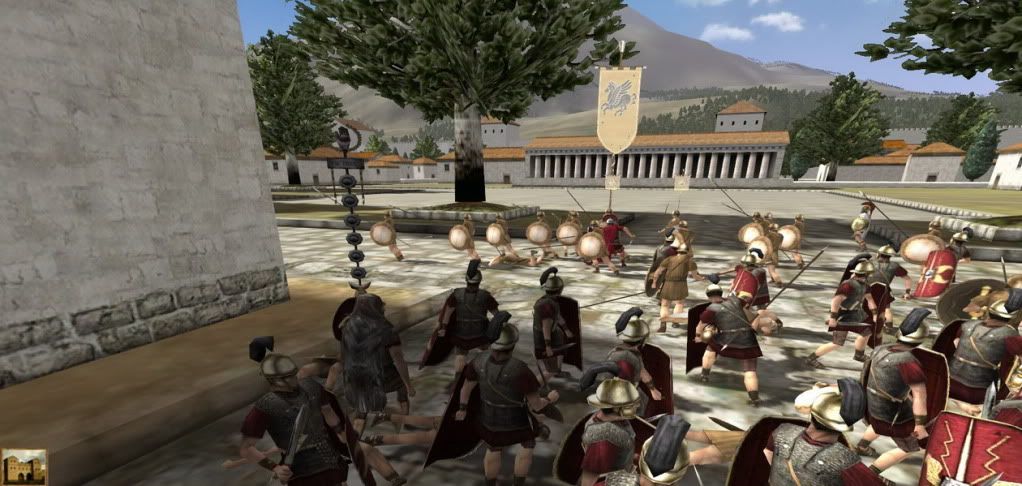
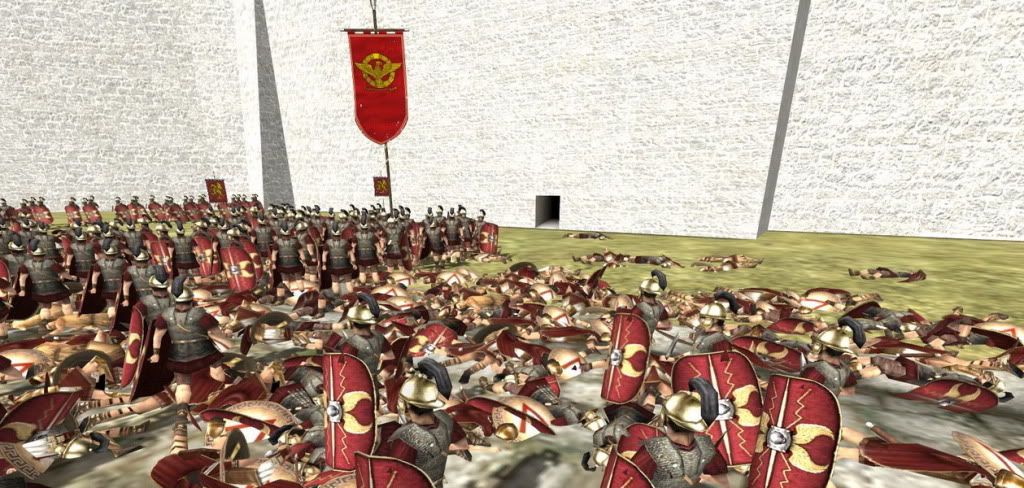
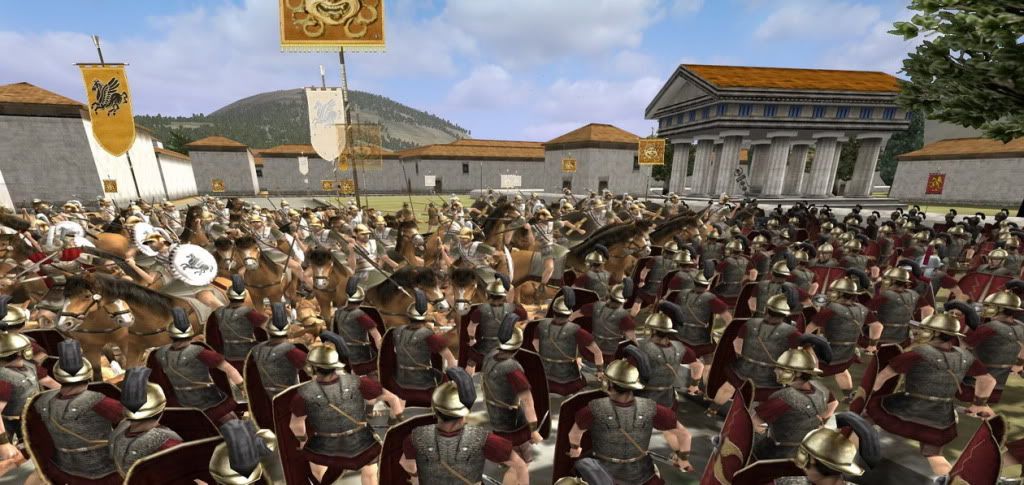
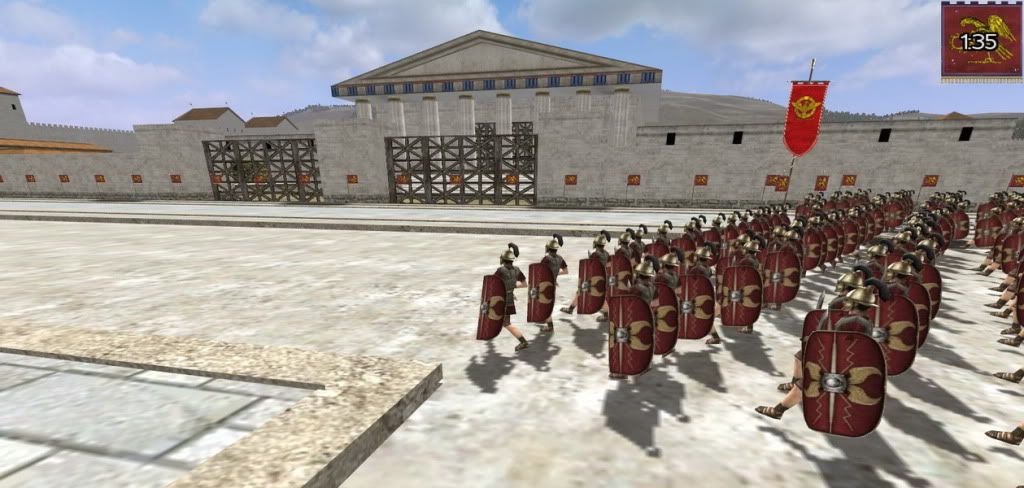
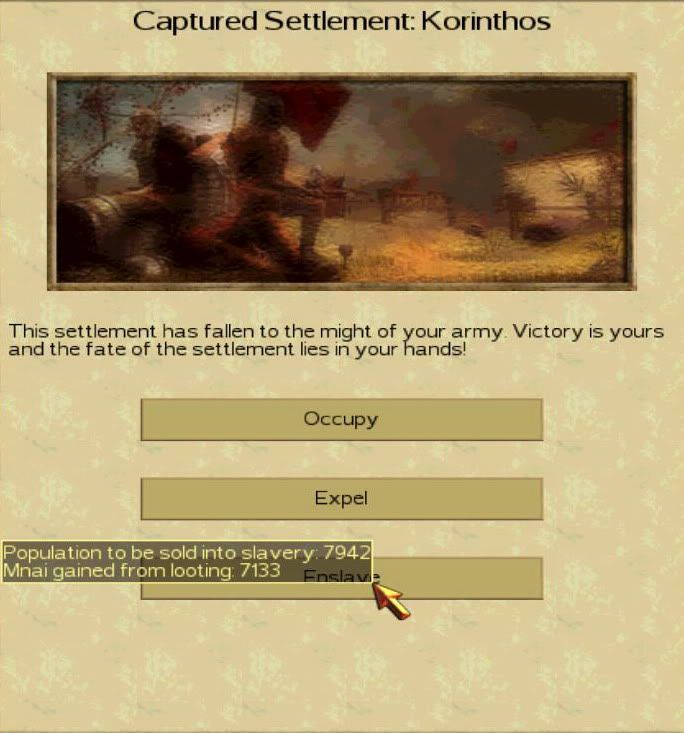
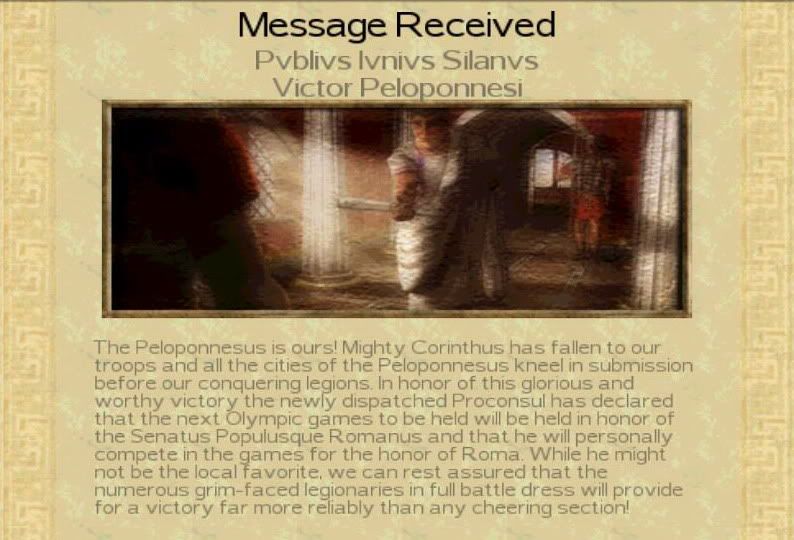
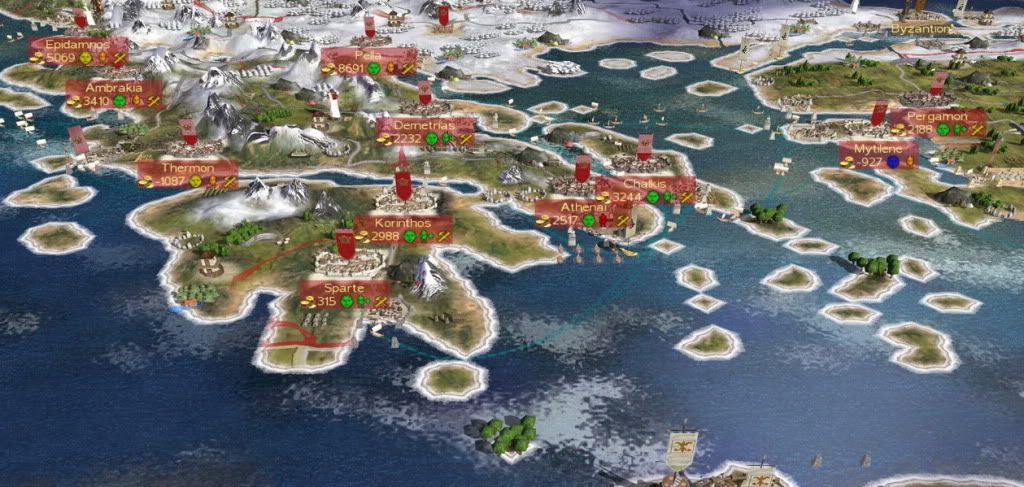

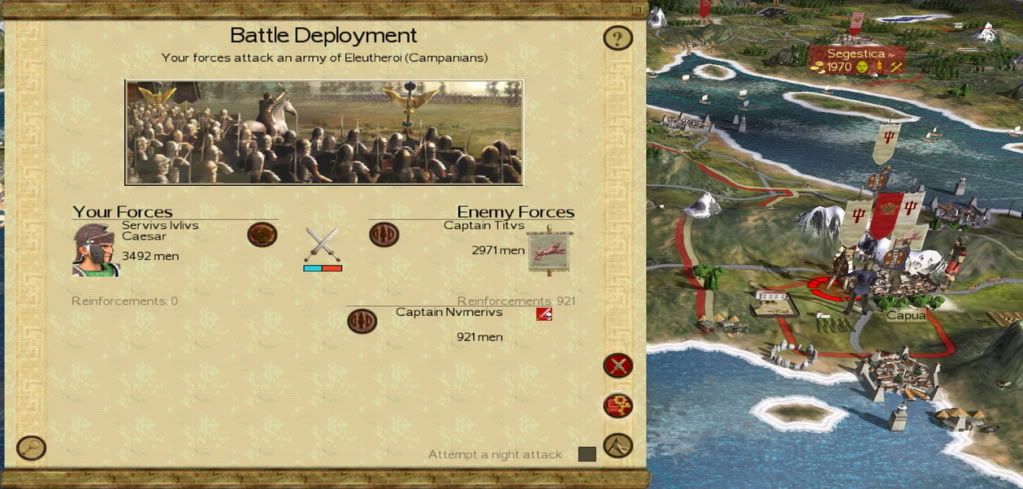
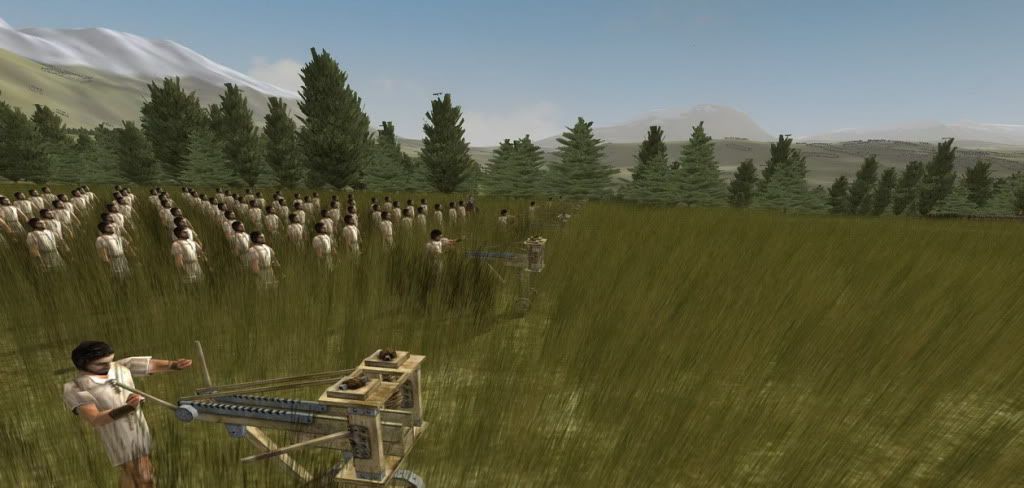
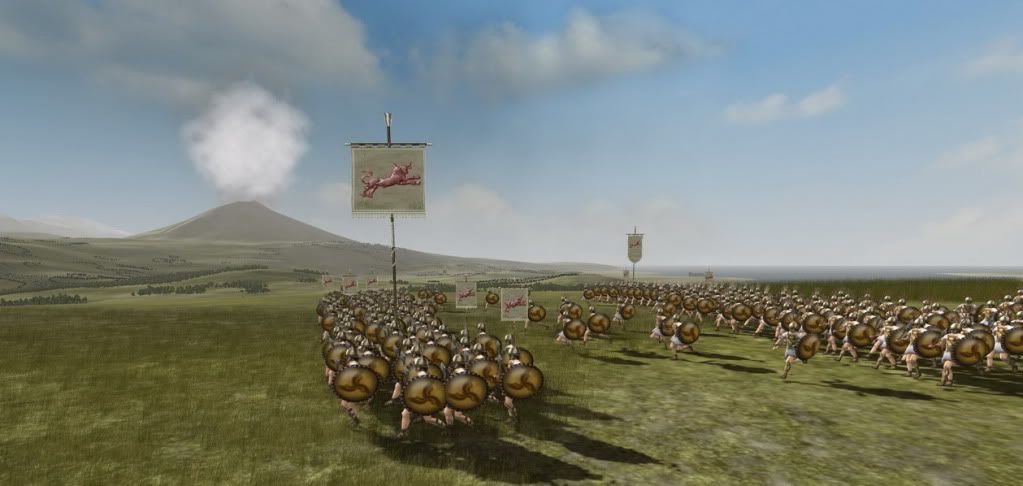
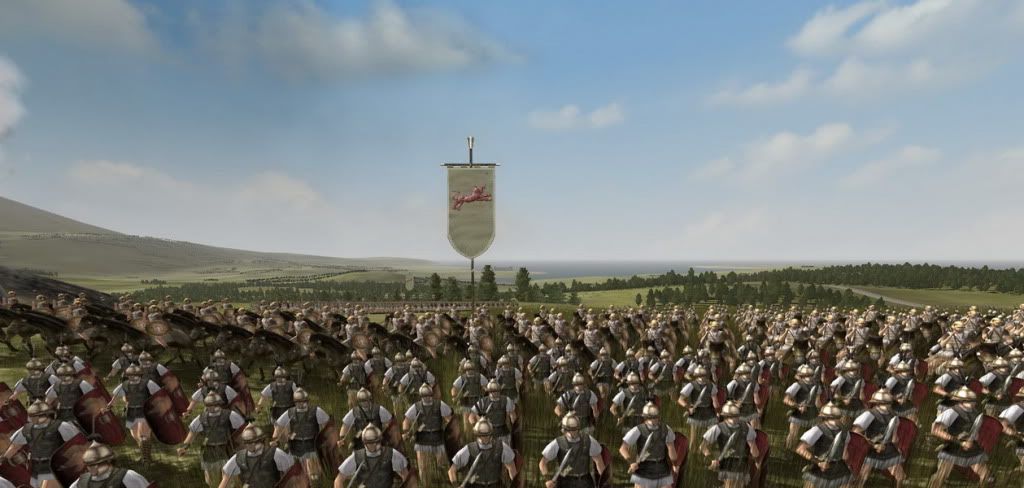
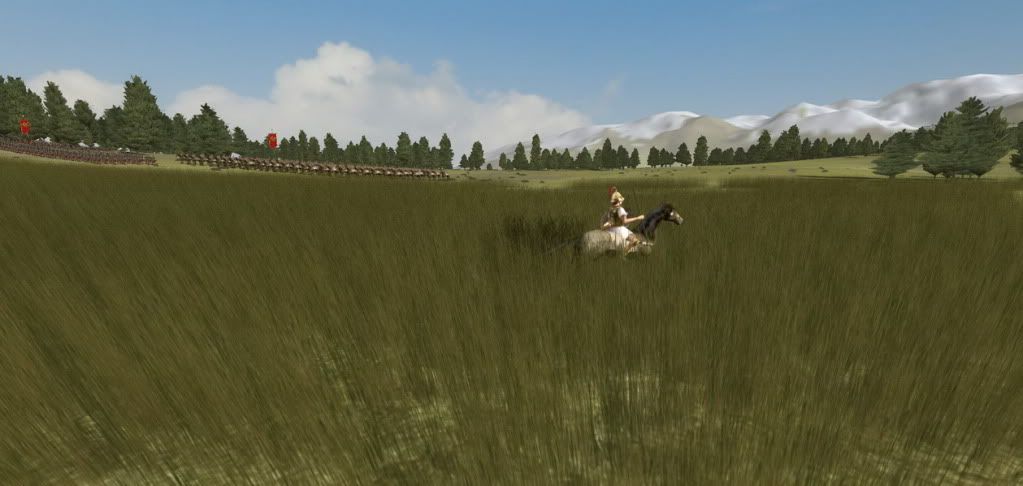
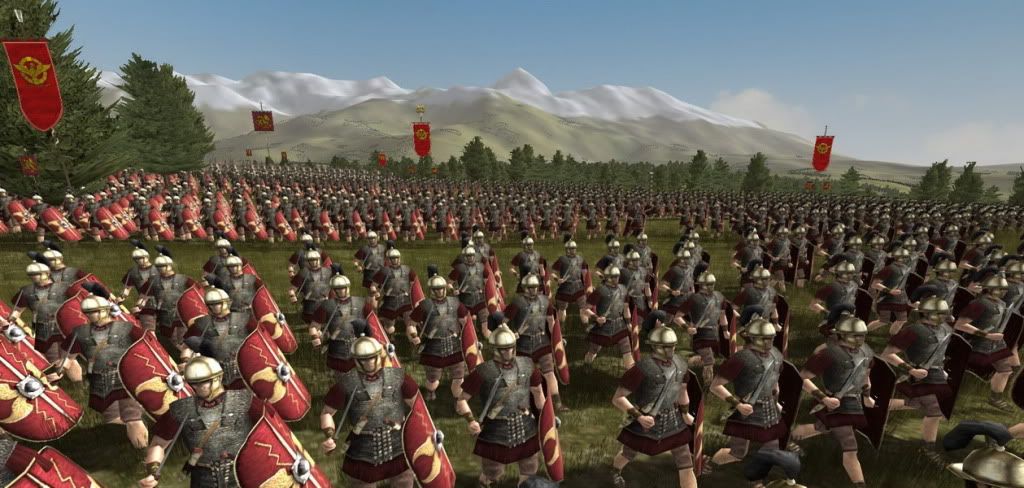
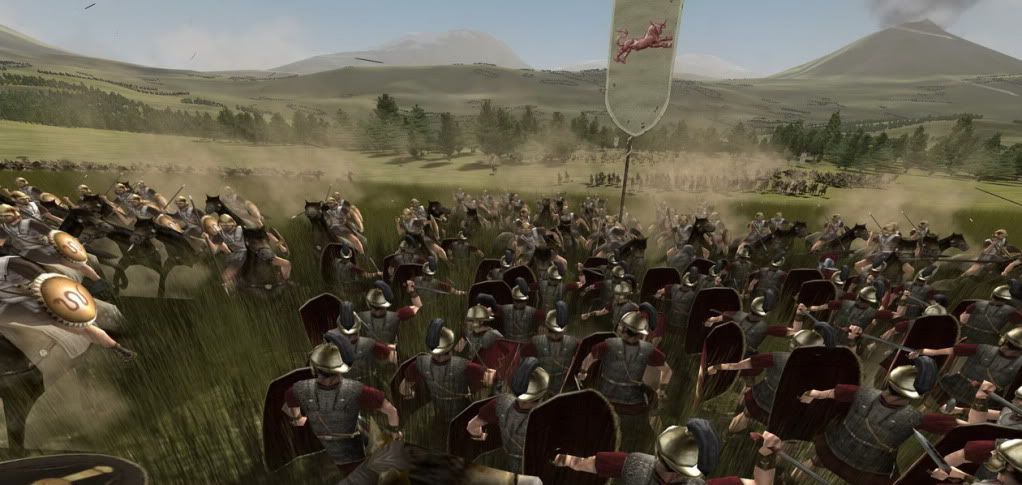
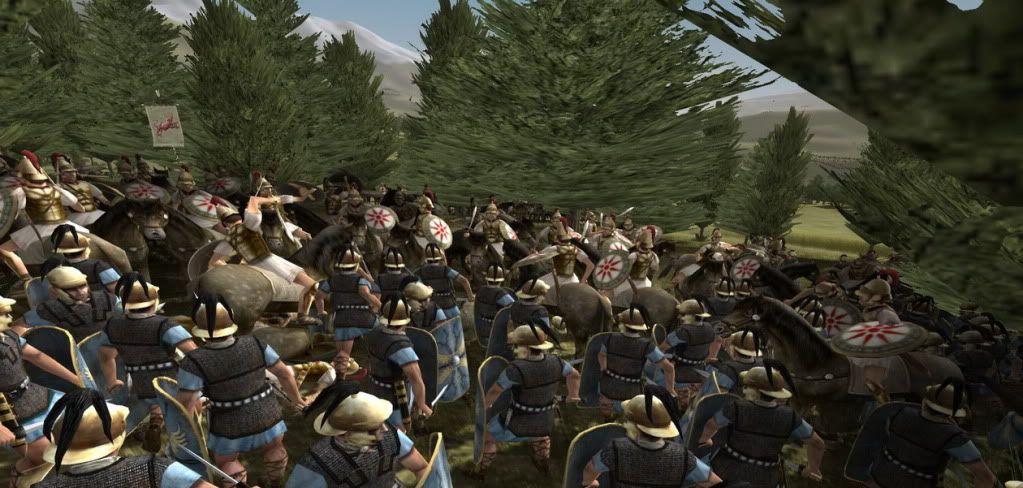
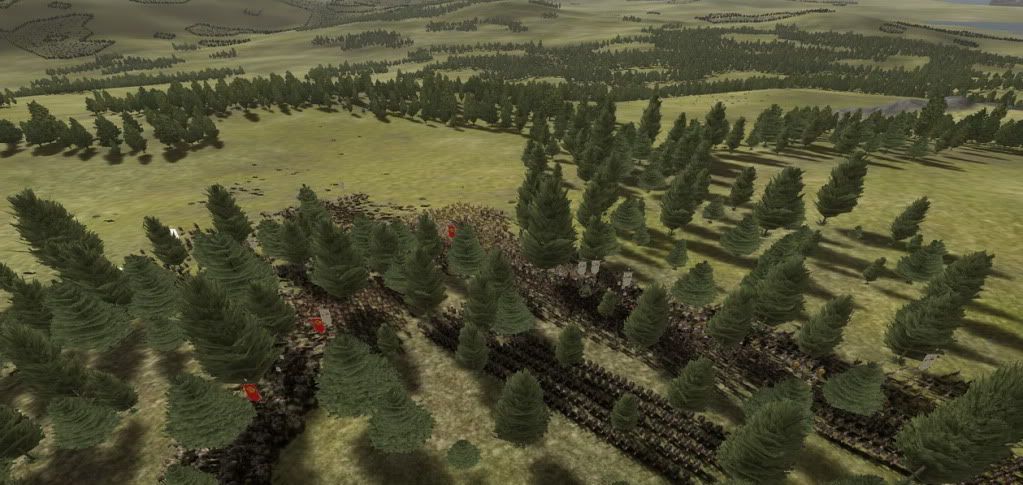
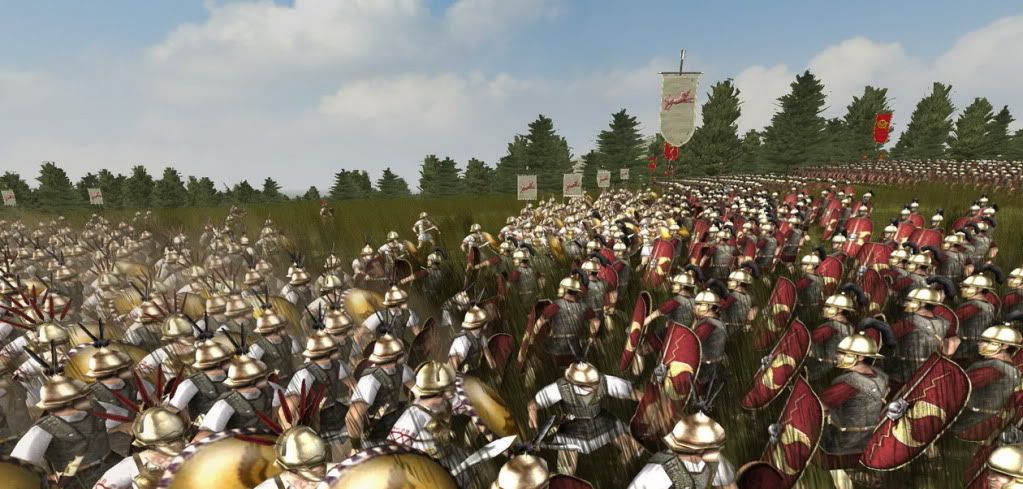
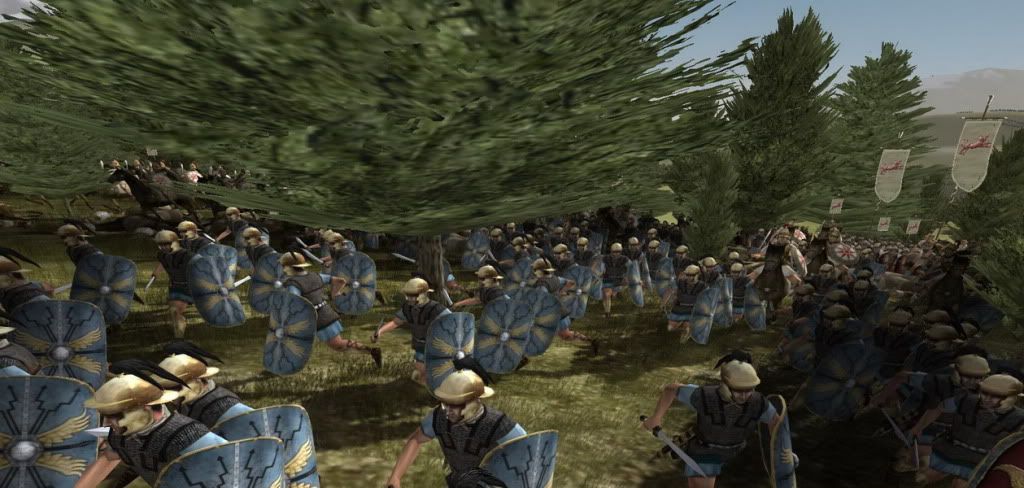

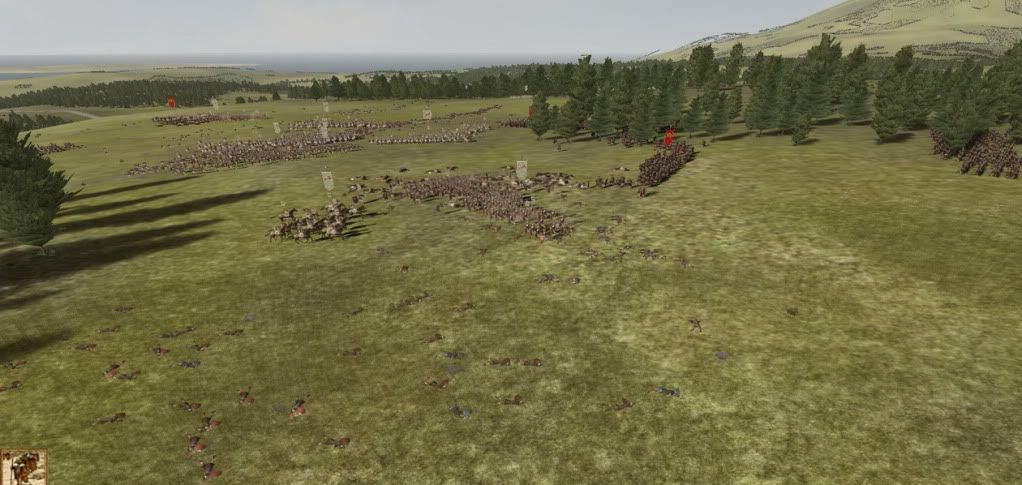
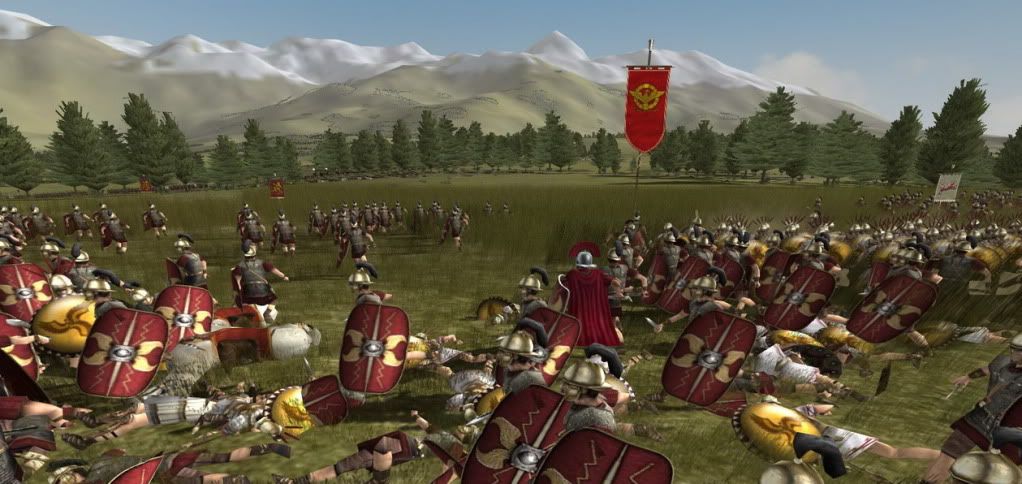
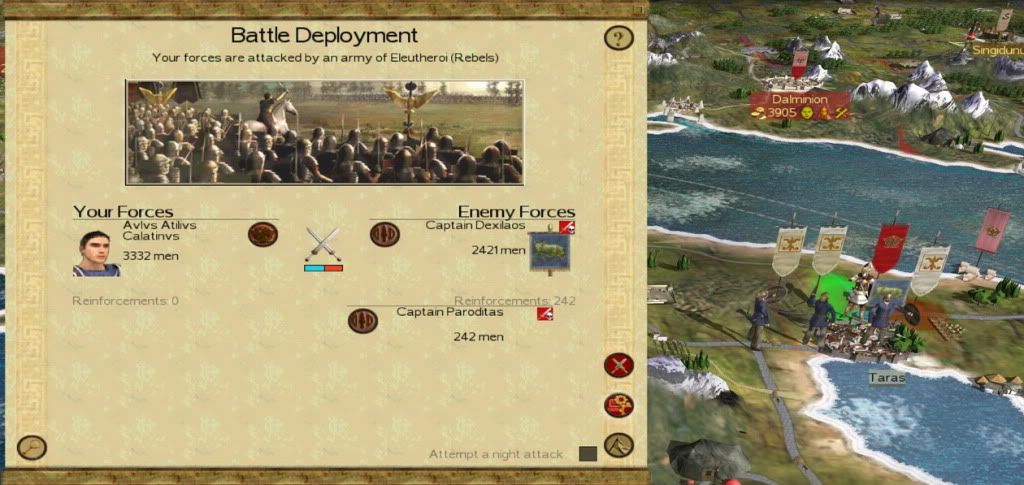

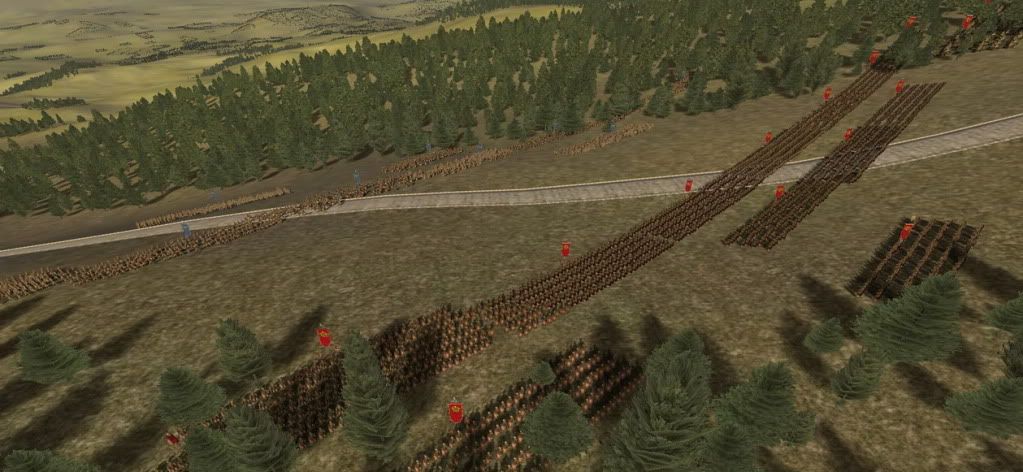
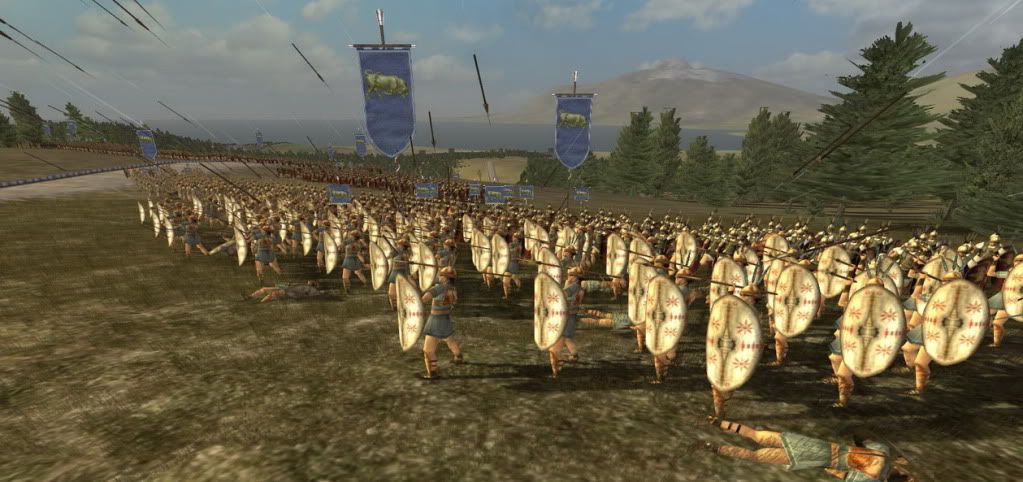
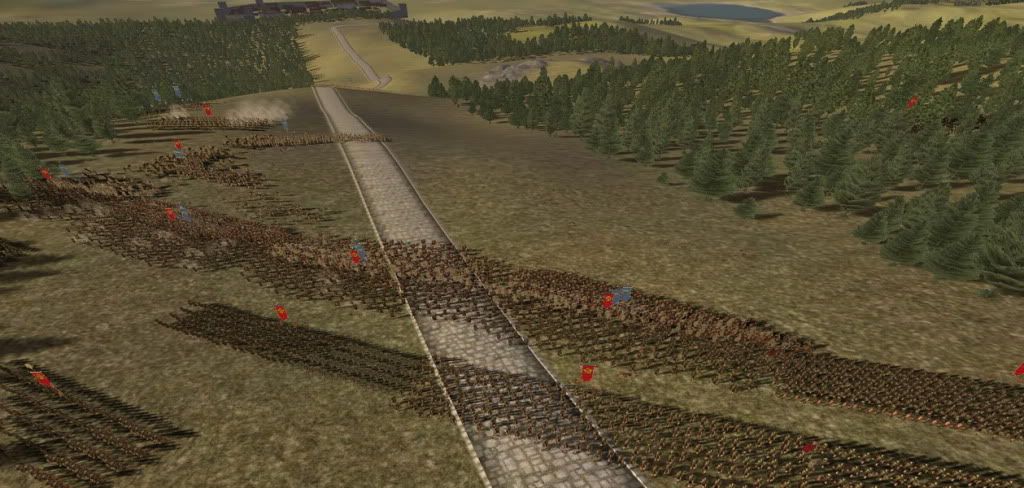
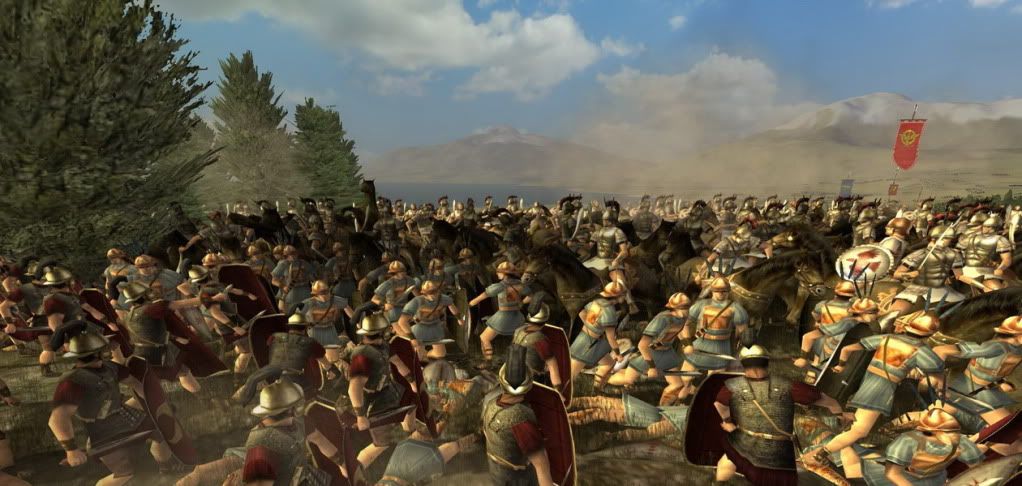
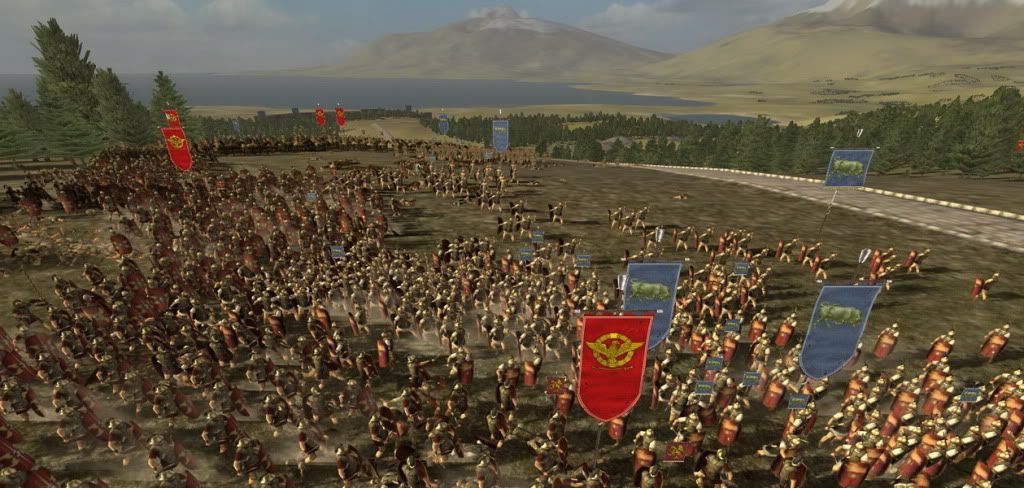
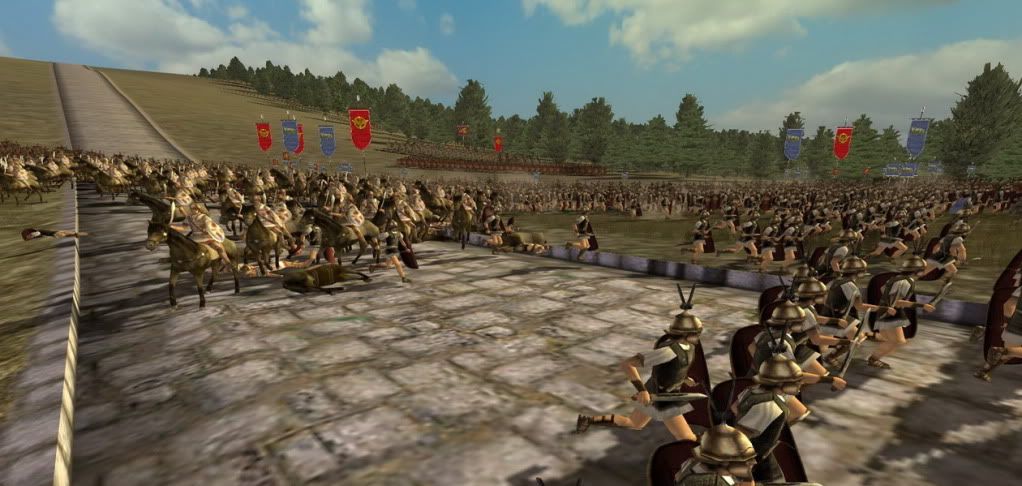
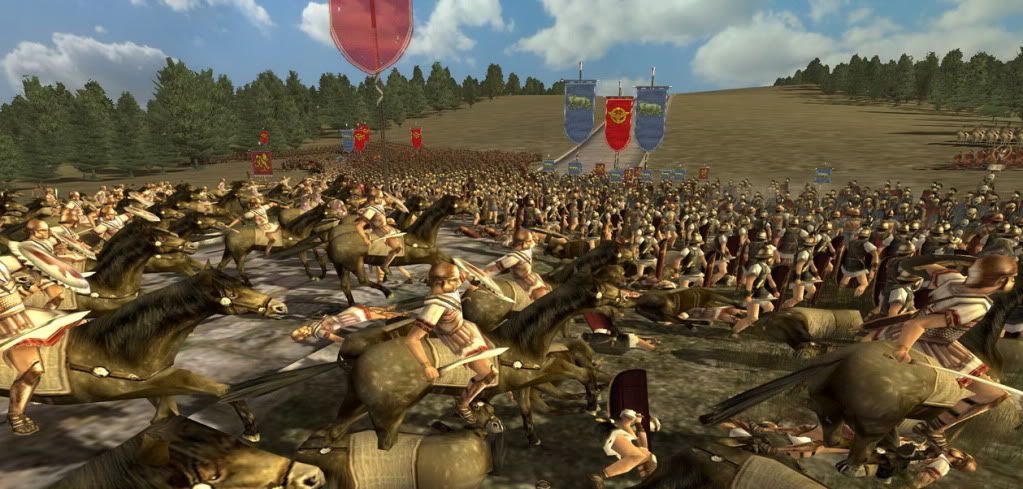
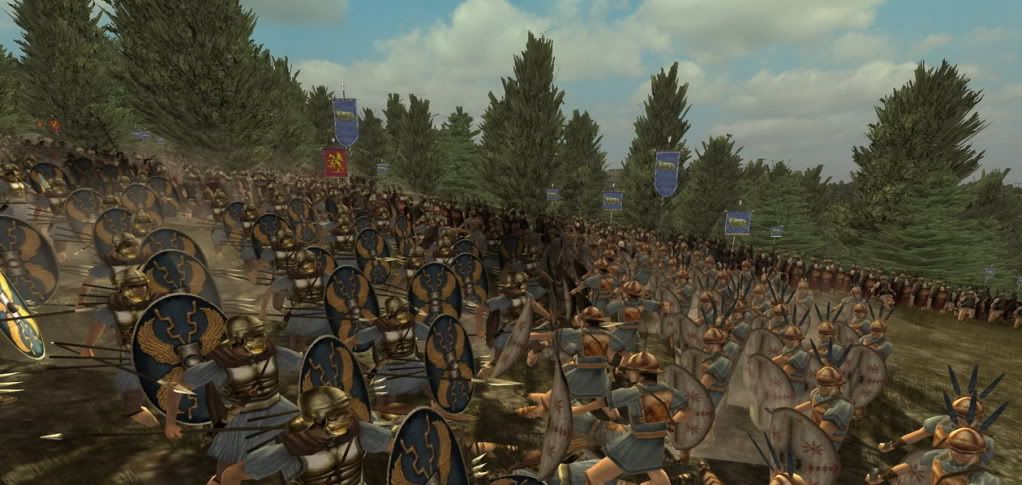
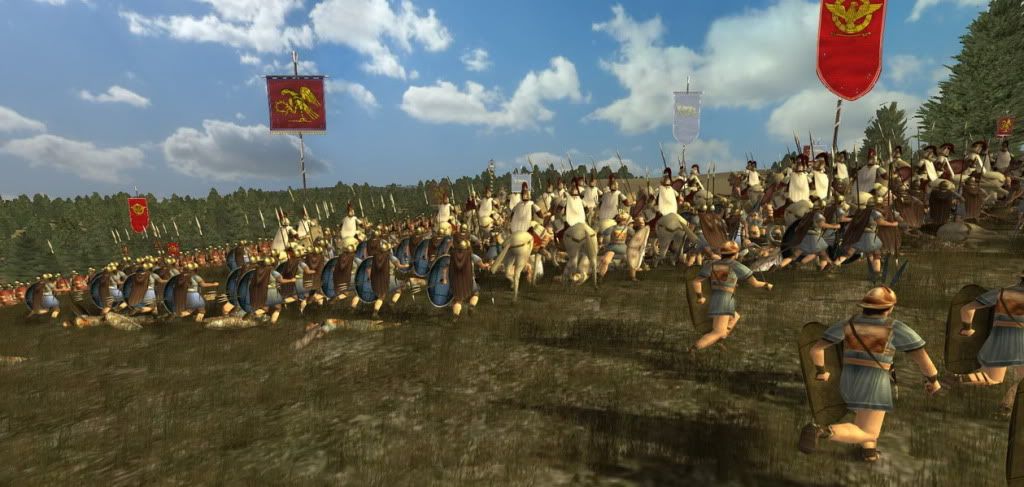
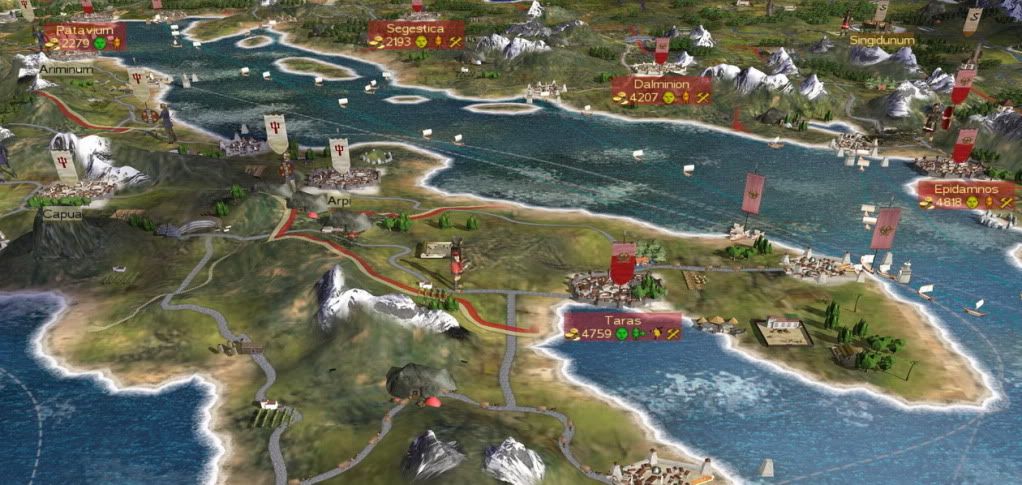


 Reply With Quote
Reply With Quote
Bookmarks